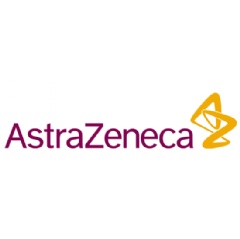US FDA Grants Fasenra Orphan Drug Designation for Hypereosinophilic Syndrome
The US Food and Drug Administration (FDA) has granted Orphan Drug Designation (ODD) to Fasenra (benralizumab) for the treatment of hypereosinophilic syndrome (HES).
HES is a group of rare, potentially fatal disorders characterised by high numbers of eosinophils in blood and tissues, which can cause progressive damage to any organ in the body.1,2 The FDA grants ODD status to medicines intended for the treatment, diagnosis or prevention of rare diseases or disorders that affect fewer than 200,000 people in the US.
A Phase II clinical trial of Fasenra for the treatment of HES has been conducted by the United States National Institutes of Health in collaboration with AstraZeneca, with results expected to be published later in 2019. In the trial, Fasenra depleted blood eosinophils at week 12 compared with placebo, the primary endpoint of the trial, with evidence of eosinophil clearance in affected tissue at week 24.3
Mene Pangalos, Executive Vice President, R&D BioPharmaceuticals, said: “In patients with hypereosinophilic syndrome, high levels of eosinophils contribute to a range of debilitating symptoms and can even lead to life-threatening organ damage. Based on results from the Phase II trial, we believe Fasenra has the potential to address critical unmet medical needs in patients living with hypereosinophilic syndrome.”
Fasenra is AstraZeneca’s first respiratory biologic and is currently approved as an add-on maintenance treatment for severe, eosinophilic asthma in the US, EU, Japan and several other countries. In November 2018, the FDA granted ODD for Fasenra for the treatment of eosinophilic granulomatosis with polyangiitis (EGPA).
About hypereosinophilic syndrome (HES)
HES is a group of rare disorders in which high numbers of eosinophils are found in the blood and tissue which can cause progressive organ damage over time, and if left untreated, can be fatal.1,2 HES most commonly impacts the skin, heart, lungs, gastrointestinal tract and central nervous system.2
The symptoms of HES may include cough, fever, fatigue, asthma, difficulty breathing, wheezing, recurrent upper respiratory tract infections, abdominal pain, vomiting, diarrhoea, skin rashes, arthritis, muscle aches and joint pain.2
The goal of HES treatment is to reduce eosinophils in the blood and tissues, prevent organ damage and slow disease progression.2,4 HES treatment typically includes glucocorticoids, immunomodulatory therapies and cytotoxic therapies.1
About Fasenra
Fasenra (benralizumab) is a monoclonal antibody that binds directly to IL-5 receptor α on eosinophils and attracts natural killer cells to induce rapid and near-complete depletion of eosinophils via apoptosis (programmed cell death).5,6
Fasenra is AstraZeneca’s first respiratory biologic, now approved as an add-on maintenance treatment in severe, eosinophilic asthma in the US, EU, Japan, and several other jurisdictions, with further regulatory reviews ongoing. Where approved, Fasenra is available as a fixed-dose subcutaneous injection via a prefilled syringe administered once every 4 weeks for the first 3 doses, and then once every 8 weeks thereafter. Fasenra is also being studied in severe nasal polyposis. Phase III trials for Fasenra in HES have not yet commenced.
Fasenra was developed by AstraZeneca with MedImmune, the company’s global biologics research and development arm, and is in-licensed from BioWa, Inc., a wholly-owned subsidiary of Kyowa Hakko Kirin Co., Ltd., Japan.
About AstraZeneca in Respiratory Disease
Respiratory is one of AstraZeneca’s main therapy areas, and our medicines reached more than 18 million patients as maintenance therapy in 2018. AstraZeneca’s aim is to transform asthma and COPD treatment through inhaled combinations at the core of care, biologics for the unmet needs of specific patient populations, and scientific advancements in disease modification.
The Company is building on a 40-year heritage in respiratory disease and AstraZeneca’s capability in inhalation technology spans pressurised metered-dose inhalers and dry powder inhalers, as well as the Aerosphere Delivery Technology. The company also has a growing portfolio of respiratory biologics, including Fasenra (anti-eosinophil, anti-IL-5rɑ), now approved for severe, eosinophilic asthma and in development for severe nasal polyposis, and tezepelumab (anti-TSLP), which has been granted Breakthrough Therapy designation by the US Food and Drug Administration in patients with severe asthma, and is in Phase III trials. AstraZeneca’s research is focused on addressing underlying disease drivers focusing on the lung epithelium, lung immunity and lung regeneration.
About AstraZeneca
AstraZeneca is a global, science-led biopharmaceutical company that focuses on the discovery, development and commercialisation of prescription medicines, primarily for the treatment of diseases in three therapy areas - Oncology, Cardiovascular, Renal & Metabolism and Respiratory. AstraZeneca operates in over 100 countries and its innovative medicines are used by millions of patients worldwide. For more information, please visit astrazeneca.com and follow us on Twitter @AstraZeneca.
( Press Release Image: https://photos.webwire.com/prmedia/5/235435/235435-1.png )
WebWireID235435
This news content was configured by WebWire editorial staff. Linking is permitted.
News Release Distribution and Press Release Distribution Services Provided by WebWire.
